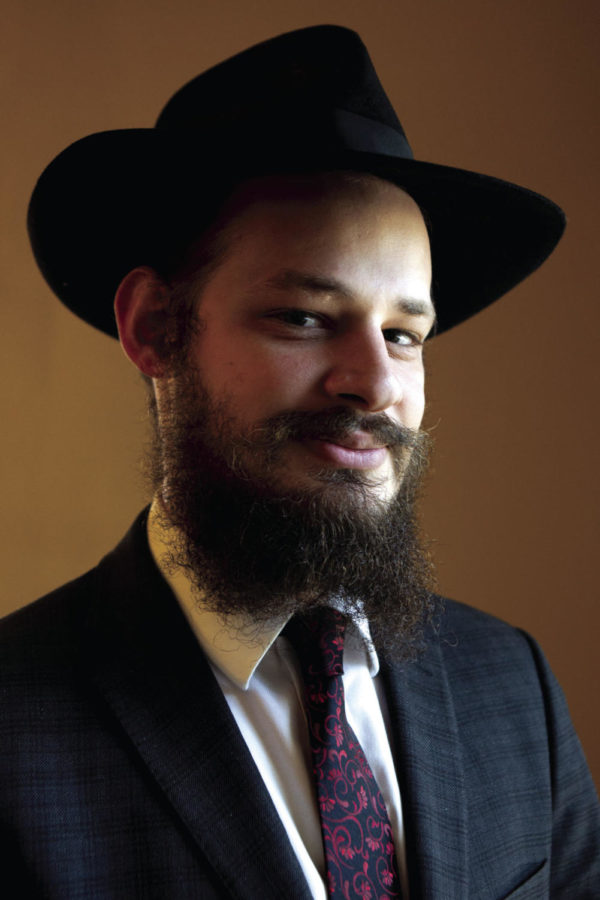Rosh Hashanah, Jewish holidays at UK are open to the curious
September 10, 2018
Observant students on Monday and Tuesday may wonder why a man in a black hat who is probably short of breath is running around campus vigorously blowing into a ram’s horn.
Curious students are encouraged to ask what’s going on, said Rabbi Shlomo Litvin, the black-hatted man who will be blowing into the ram’s horn, because on Monday and Tuesday Rosh Hashanah, generally known as Jewish new year, will take place.
But Rabbi Litvin said, “that is not a great description.” The holiday is more about an anniversary of a relationship rather than the beginning of a new year.
That anniversary, Rabbi Litvin said, is the 5,779th anniversary of when God brought man into existence.
“God seeks a relationship with human beings, so Rosh Hashanah is not when the world was created. Rosh Hashanah is the sixth day of creation when man was created,” Rabbi Litvin said.
Much of the celebrations and motivations behind Rosh Hashanah is about reviewing and renewing that relationship. For example, you don’t make new year’s resolutions on the day but it’s more like when you “have an anniversary, you look over your relationship, you say, ‘Hey we don’t spend enough date nights together let’s spend some more time together,’” Rabbi Litvin said. “So it’s looking over the relationship and seeing how you can improve it.”
The ram’s horn, known in Hebrew as a shofar, is a big part of that, he said. It is blown— in three different ways that resembles a baby’s crying— to wake up the Jewish people and “remind us to reinvest in the relationship.”
“Over the course of Rosh Hasanah, you’re supposed to hear over 100 blasts,” Rabbi Litvin said. “In order that all students have an opportunity to hear, I will probably blow over the two days of Rosh Hashanah, 3,000-5,000 blasts which does take it out of you a tiny bit.”
He estimated that he walks about 15 miles over the course of the two-day holiday.
“It’s a generally energizing holiday for me,” he said.
The biggest and most public shofar blowing will be on Monday at 3 p.m. at the William T. Young Library. It’s also one of the best times for people curious about the holiday to come ask questions and listen.
“When I’m standing in front of the library with 30 or 40 students and I blow a ram’s horn for five minutes I get extremely strange looks. A couple people think I’m just nuts,” Rabbi Litvin said.
But others stop, ask questions and better understand others in their community who may be different than them.
“I find the biggest cause of disunity in a community is lack of knowledge,” he said. “It’s very hard to hate people you know.”
The holiday is also celebrating with eating various dishes, including a fish head, carrots, and various dishes which include “a lot, a lot of honey.” Those present at the meeting also try to eat a fruit none of them have ever had before or at least not in a year, “so that they may have positive new experiences in the coming year.”
Last year, they ate jack fruit, among other options of fruits that none of those present had had before.
“We had one guy that had never had grapes before so he had that,” Litvin said.
Rosh Hashanah marks the beginning of the Jewish High Holidays. The evening of Tuesday, Sept. 18, marks the beginning of Yom Kippur, and the evening of Sunday, Sept. 23, marks the beginning of Sukkot.
“Everyone is welcome,” Rabbi Litvin said.
If you’re hoping to go he asks that you RSVP with the Jewish Student Center at http://chabadofthebluegra.wixsite.com/chabadbluegrass.
































































































































































